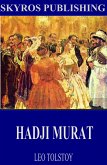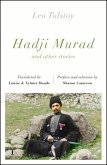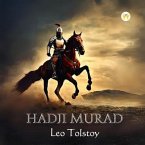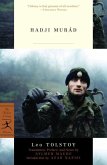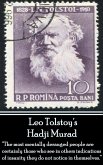This edition includes a modern introduction and a list of suggested further reading.
With the resumption of Russia's military action in Chechnya in the 1990s, Hadji Murad gains new relevance, and anyone following global terrorism today will find Tolstoy's description of the nineteenth-century war all too familiar. The work provides a wealth of information about the Caucasus and on one of the most colorful figures of the nineteenth-century Russo-Caucasian war, the Avar chieftan, Hadji Maurad. Changing allegiances, inter-ethnic tensions, raids on villages, inaccurately reported war casualties, grieving mothers, and even the gruesome beheadings described so vividly in Hadji Murad still occur. Rarely are they described in prose as powerful as Tolstoy's.
Dieser Download kann aus rechtlichen Gründen nur mit Rechnungsadresse in A, D ausgeliefert werden.



